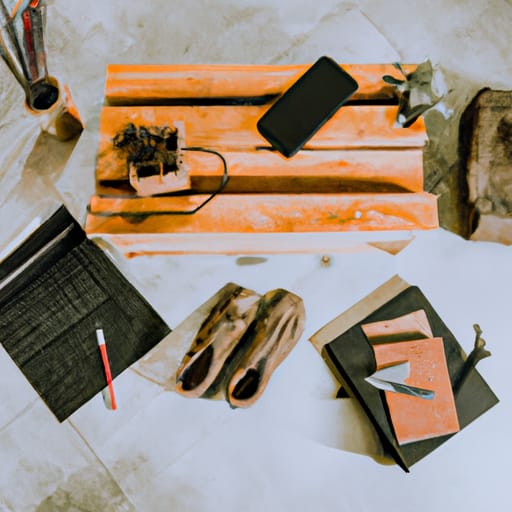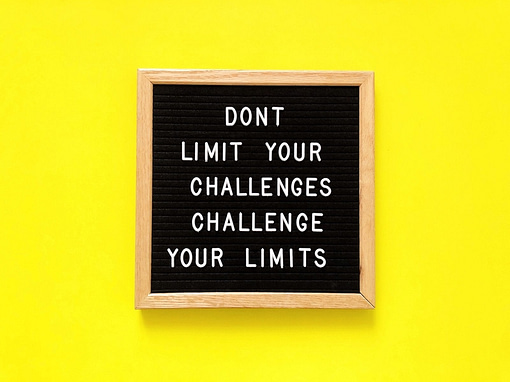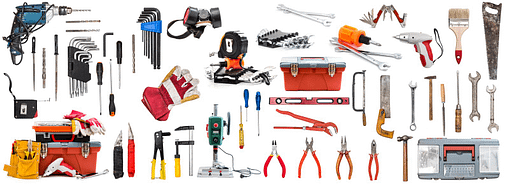So, you’ve decided to venture into the exciting world of DIY projects, but now you find yourself facing various challenges along the way. Whether it’s the lack of expertise, limited resources, or simply feeling overwhelmed, tackling a project on your own can be a daunting task. But fear not! In this article, we will explore some practical tips and strategies for how to overcome the challenges of DIY projects and transform your DIY endeavors into successful and enjoyable experiences. So, grab your tools and let’s get started on your journey to becoming a DIY master!

Choosing the Right Project
When it comes to embarking on a DIY project, the first step is to choose the right one for you. Start by identifying your skills and interests. What are you passionate about? What are you good at? Knowing your strengths and weaknesses will help you determine the kind of project that aligns with your abilities.
Once you have a better understanding of your skills and interests, it’s time to research different project options. The internet is a valuable resource for finding inspiration and ideas. Browse through DIY websites, blogs, and social media platforms to get a sense of what projects are out there. Consider the complexity and scale of each project and determine if it matches your skill level and the time you’re willing to invest.
Gathering the Necessary Tools and Materials
Before diving into any project, it’s essential to gather all the necessary tools and materials. Start by making a list of the items you will need for your specific project. Don’t forget to consider safety equipment such as gloves, goggles, and masks.
Next, check your existing inventory. You may already have some of the tools or materials needed. Go through your garage, basement, or any other storage space to identify what you already have. This step can help you save money and avoid purchasing duplicates.
After checking your inventory, it’s time to research and compare prices. Look for the best deals online or visit local hardware stores to compare prices. Keep in mind that quality also matters, so don’t compromise on tools or materials just to save a few bucks. Once you’ve identified the best options, make your purchases or borrow missing items from friends or family if possible.
Planning and Organizing
A well-planned and organized project can save you time, money, and frustration. Start by creating a detailed project plan. Write down the steps you need to take, the timeline, and any deadlines you want to meet. Having a clear plan in place will help you stay focused and ensure that you stay on track throughout the project.
Breaking the project into smaller tasks is essential for better organization. It allows you to tackle one step at a time, making the entire project seem more manageable. Allocate resources and budget to each task, and keep track of your progress as you go along. This will help you stay accountable and ensure that you’re making steady progress towards the completion of the project.
In addition to task organization, it’s also essential to organize your workspace. Keep your tools and materials in a designated area and ensure they are easily accessible. A clean and organized workspace will not only make your DIY project more efficient, but it will also help prevent accidents and injuries.
Acquiring Knowledge and Skills
To successfully complete a DIY project, it’s crucial to acquire the necessary knowledge and skills. Start by researching and learning about the project you’re undertaking. Go through online resources, books, and articles to gain a better understanding of the techniques and materials involved. The more you know, the more confident you’ll be in tackling the project.
In addition to research, consider watching tutorials and reading guides specific to your project. Visual learning can be incredibly helpful, as you can see the steps being performed in real-time. Many websites and platforms offer step-by-step videos for a wide range of DIY projects.
If you feel like you need more comprehensive guidance, consider taking online courses or attending workshops. These resources provide hands-on learning experiences and allow you to interact with instructors and fellow learners. Some courses even offer certifications upon completion, which can be valuable if you’re looking to expand your DIY skills in the future.
Lastly, practice makes perfect. Take the time to practice and improve your skills before diving into your project. Experiment with smaller, less complex tasks that are similar to what you’ll be doing in the main project. This will help you build confidence and ensure that you’re well-prepared when it’s time to put your skills to the test.

Managing Time Effectively
Time management is key to successfully completing any project. To manage your time effectively, start by setting realistic goals and expectations. Understand that DIY projects can take longer than initially anticipated, so be prepared for potential delays or setbacks.
Prioritizing tasks is another crucial aspect of time management. Identify the most crucial and time-sensitive tasks in your project and focus on those first. This will help you make progress even if unexpected challenges arise.
Creating a daily or weekly schedule can also be beneficial. Block out specific times for working on your project and stick to the schedule as much as possible. Treat these dedicated times as important appointments that you cannot cancel or reschedule.
Procrastination can be a significant hurdle in managing your time effectively. To combat this, break down the project into smaller tasks and set deadlines for each one. Holding yourself accountable to these deadlines will help you stay motivated and avoid putting off the work.
Remember, taking breaks and resting when needed is essential for maintaining productivity. Overworking yourself can lead to burnout and decrease the quality of your work. Listen to your body and mind, and give yourself the necessary time to recharge.
Seeking Help and Support To Overcome The Challenges Of DIY Projects.
No DIY project is entirely self-contained. Seeking help and support is essential, especially when facing challenges or unfamiliar tasks. Reach out to family or friends who may have experience or skills related to your project. They can provide valuable insights, guidance, or even hands-on assistance if needed.
Joining DIY communities or forums is another excellent way to seek help and support. These platforms allow you to connect with like-minded individuals who share similar interests and experiences. Take advantage of their knowledge and ask questions when you’re stuck or need advice.
If you’re dealing with complex tasks that are outside your comfort zone, consider consulting professionals or experts. Hiring a contractor for specific aspects of your project can ensure that the work is done correctly and up to code. While it may come with an additional expense, it can save you time, frustration, and potential costly mistakes.
How To Overcome The Challenges Of DIY Projects – Safely.
When engaging in any DIY project, prioritizing safety is paramount. Before starting, read and follow all instructions for the tools and materials you’ll be using. Familiarize yourself with proper usage and any safety precautions.
Using personal protective equipment (PPE) is crucial. Depending on the project, you may need gloves, goggles, masks, or even specialized safety gear. Wearing the appropriate PPE can protect you from potential injuries or exposure to harmful substances.
Ensuring proper ventilation in your workspace is essential. If you’re working with materials that emit fumes or dust, ensure that the area is well-ventilated. Open windows, use fans, or consider using a ventilation system if necessary.
Keep children and pets away from your work area to prevent accidents or injuries. DIY projects can involve sharp tools, heavy materials, or hazardous substances. Create a designated safe zone where they cannot access, ensuring their safety during the project.
Handle tools and materials with care. Always use tools as intended and store them properly when not in use. Inspect your tools regularly for any wear or damage and replace them if necessary. Mishandling tools can lead to accidents and compromise the quality of your work.
Dealing with Frustration and Setbacks
DIY projects are not without challenges and setbacks. It’s crucial to stay patient and maintain a positive mindset when facing difficulties. Remember that setbacks are an opportunity for growth and learning. Stay calm and take a step back to reassess the situation. Sometimes, taking a break and gaining a fresh perspective can lead to a solution.
Seeking advice or guidance from experienced individuals can provide valuable insights. Reach out to family, friends, or online communities to discuss the challenges you’re facing. They may have encountered similar obstacles and can offer suggestions or alternative approaches.
If you’re stuck on a specific problem, try breaking it down into smaller parts. Analyze the issue and identify the root cause of the setback. From there, brainstorm alternative solutions and experiment with different approaches. Don’t be afraid to think outside the box and try unconventional methods. Sometimes, the best solutions come from unexpected places.
Learning from Mistakes
Making mistakes is an inevitable part of any DIY project. The key is to learn from them and use those lessons to improve future projects. Take the time to analyze what went wrong and understand the root cause of the mistake. This will help you avoid making the same errors in the future.
Research and understand the correct approach to the problem at hand. Look for resources, tutorials, or expert advice that can guide you in the right direction. Gain a deeper understanding of the techniques or materials involved to ensure that you have the necessary knowledge for future projects.
Implement the lessons learned in your future projects. Apply the correct techniques, avoid the same mistakes, and continuously work on improving your skills. Each project is an opportunity to grow and refine your abilities, so embrace the learning process.
Celebrating Achievements
Completing a DIY project is a significant accomplishment, regardless of its scale or complexity. Take the time to acknowledge and appreciate your hard work and achievements. Step back and admire the finished project, knowing that you brought it to life with your skills and dedication.
Consider taking pictures or documenting the project from start to finish. This not only allows you to look back on your progress but also serves as a source of inspiration for others. Share your success with family, friends, and online communities. Your achievements may inspire others to take on their own DIY projects.
Lastly, don’t forget to reward yourself for a job well done. Treat yourself to something special or take a break and relax. Celebrating your accomplishments reinforces the positive aspects of DIY projects and motivates you to take on new challenges in the future.
In conclusion, overcoming the challenges of doing DIY projects requires careful planning, acquiring knowledge and skills, effective time management, seeking help when needed, prioritizing safety, learning from mistakes, and celebrating achievements. By following these steps and staying determined, you can successfully tackle any DIY project that comes your way. Happy DIYing!













